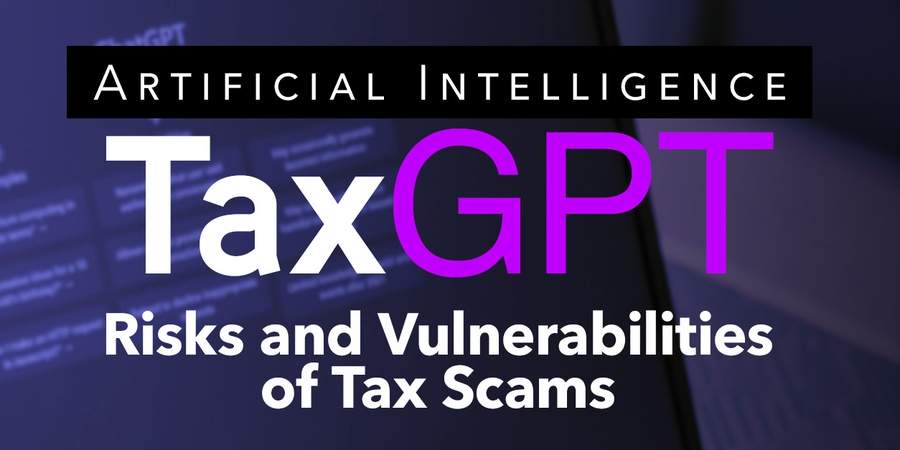Artificial Intelligence
The emergence of artificial intelligence (AI) tools such as chatbots (A computer program that simulates and processes human conversation (either written or spoken)) and deepfakes (A video depicting an individual whose face or body has been digitally manipulated to make them appear as someone else.) has raised concerns about the potential risks of tax scams. Cybercriminals are using these tools to generate deceptive tax scams that are specifically tailored to trick vulnerable taxpayers and steal their personal financial information. Families, older Americans, and small businesses are particularly vulnerable to these scams.
Understanding the Risks and Vulnerabilities of Tax Scams:
Unlike conventional scams, which were more detectable due to spelling mistakes, grammatical errors, and incorrect references to the tax code, AI-generated tax scams are professionally composed and can deceive taxpayers. A cybersecurity expert showcased the ability of ChatGPT, an AI-powered chatbot, to generate counterfeit emails or transcripts imitating the IRS, demanding personal financial information or payment of fake fines or taxes. This increases the risk of taxpayers losing their personal financial information or paying fraudulent fines or taxes.
Urging the IRS to Counter AI-Generated Tax Scams:
There is a growing demand for the Internal Revenue Service (IRS) to employ every available resource in their arsenal to combat tax scams generated by artificial intelligence (. The public is requesting the IRS to educate taxpayers and tax professionals about the characteristics of these scams, their potential risks, and how to avoid them.
How Can a Tax Lawyer Help You Stay Safe?
If you want to protect yourself from AI-generated tax scams, a tax lawyer may be able to help. They can provide advice on best practices for identifying and avoiding potential scams, such as not providing personal financial information via email.
Legal Action Against Perpetrators of Tax Scams:
If you have fallen victim to an AI-generated tax scam, a lawyer may be able to help you take appropriate legal action against the perpetrators. They can advise on the steps to take to report the scam to the relevant authorities and work with you to identify any potential legal remedies. Unfortunately, this may not be possible if the identity of the fraudster and his internet protocol number is not known.
Ensuring Compliance with Tax Laws and Regulations:
If you are a business owner, a lawyer can help you ensure that your business is in compliance with relevant tax laws and regulations. They can help you navigate complex tax requirements and advise on how to avoid potential tax-related legal issues.
Conclusion:
The emergence of AI-generated tax scams has created new risks and vulnerabilities for taxpayers. It is crucial to understand these risks and take steps to protect yourself from them. A tax lawyer can help you stay informed, protect your personal financial information, and possibly take legal action.
As AI-generated tax scams become increasingly sophisticated, it is essential to take steps to protect yourself and your personal financial information. It is important to stay informed of breaking developments and reported scams.
Don't wait until it's too late - take action now to protect yourself and your business. Make sure your employees are aware of the possibility of tax scams.
If you're concerned about AI-generated tax scams and want to stay safe, don't delay! Reach out to a tax attorney David M, Garvin today. His expertise can provide you with the guidance and support needed to identify and avoid these potential scams. Equipping yourself with the right knowledge is the first step towards protection.
Ready to take the next step? Contact the law office of David M. Garvin to ensure you and your business are well-protected against AI-generated tax scams.





